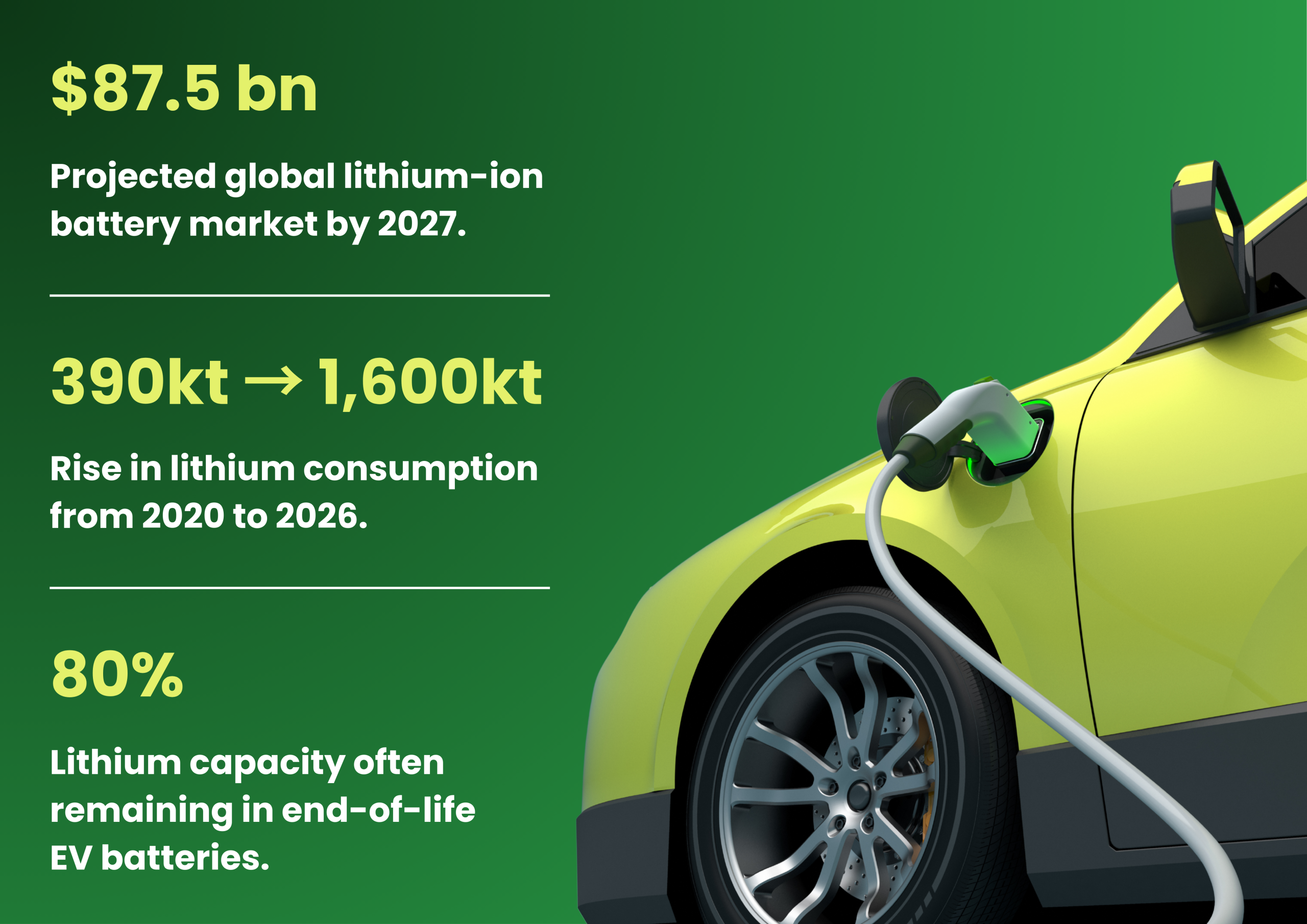Lithium-Ion Battery Recycling: Unlocking the Energy of Tomorrow

Recent research from Edith Cowan University (ECU) reinforces a position Recyclus Group has long advocated: recycling lithium-ion batteries is not simply a waste management exercise, it is an essential pillar in securing the future of energy, resources, and environmental health.
A Market Charging Ahead
The lithium-ion battery market is accelerating at a remarkable pace. Globally, it is forecast to expand at a compound annual growth rate of 13%, reaching a staggering $87.5 billion by 2027. Lithium consumption alone is set to soar from 390 kilotons in 2020 to 1,600 kilotons by 2026.
But the numbers reveal a hidden inefficiency: when a battery is no longer suitable for use in an electric vehicle, around 80% of its lithium capacity remains unused. Left unmanaged, these batteries too often end up in storage or, worse, landfill.
Recycling as an Economic and Environmental Engine
For governments and industry alike, the economic case for recycling is undeniable. The Australian Department of Industry, Science and Resources estimates that lithium battery recycling could generate $603 million to $3.1 billion annually within just over a decade.
Recycling enables the recovery of not only lithium, but also other critical materials such as nickel and cobalt. While this recovered supply will not replace mining entirely, its environmental advantages are profound. Compared to mining, recycling dramatically reduces:
- Land and water use
- Soil contamination
- Carbon and water footprints
- Harmful chemical emissions
The result is a process that not only cuts greenhouse gas emissions but also minimises waste, transforming a potential environmental liability into a high-value resource stream.
From Waste to Strategic Asset
Lithium is not just another commodity; it is a strategic resource underpinning the global energy transition. As the electrification of sectors like mining accelerates, used batteries from industrial machinery represent a growing, untapped reservoir of materials.
For countries with large reserves, such as Australia, recycling creates dual benefits: alleviating pressure on primary extraction and strengthening domestic supply chains. For companies like Recyclus Group, it means advancing towards a truly circular economy, where yesterday’s battery powers tomorrow’s innovation.
Our Perspective
For Recyclus Group, this is not just a conversation about waste; it is about leadership in the sustainable industrial economy. By capturing high-purity materials from end-of-life batteries, we reduce environmental impact, secure critical resources, and contribute directly to the resilience of the global energy system.
Lithium-ion battery recycling is not the end of the battery’s journey; it is the beginning of its next chapter. The companies and nations that embrace this will not only reduce their environmental footprint but also position themselves at the forefront of the clean energy revolution.
